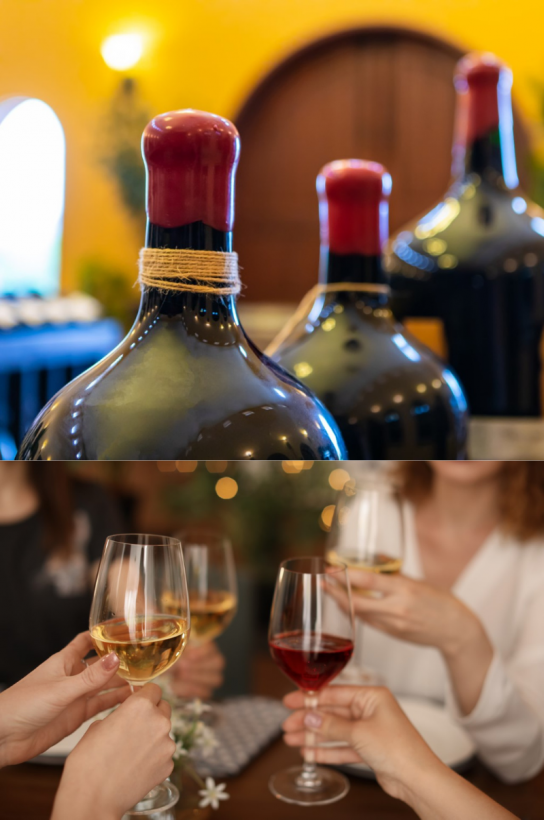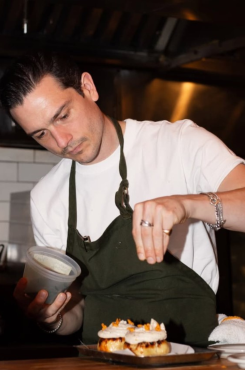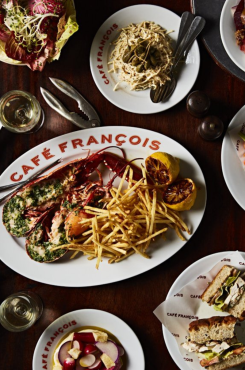From big to small: why alternative formats will be the go-to this Christmas
Published 21 December 2020

Sponsored content in collaboration with Bibendum
It’s safe to say that Christmas may look a little different this year. While roaring-20s-esque parties, swinging from the chandeliers and celebrating with extended family are likely to be on hold for the foreseeable future, there’s no reason why venues shouldn’t be preparing themselves to meet festive demands in whatever way they can.
Flexibility is going to be key this Christmas. With no one knowing what lies around the corner, being able to offer a versatile list will mean venues are set up to answer the needs of smaller groups looking to toast the festive season – even if they’re doing it in a modest group of six. A well thought out list that goes beyond the standard 75cl will also mean that even if rules do change again – as they likely will – sites will be prepared to face subsequent differences in the way people drink and dine over the coming months.
Magnums
Magnums have long been associated with celebration. After all, what’s better than one bottle of wine, than two bottles of wine in one? And, in a year where many people’s expectations and hopes for a celebratory Christmas free of COVID-19 are likely to be dashed, keeping some sense of festivity going is vital for venues looking to deliver a positive customer experience. It’s also fairly fitting that magnums serve 6 x 250ml glasses – perfect for the ‘rule of six’ that’s predicted to be in effect well into 2021.
Small Formats
On the flip side, for groups of fewer than 6 – or groups of experimental drinkers, where everyone wants to try something different – small formats will play a key role. With larger parties on hold, venues need to recognise that not everyone round the same table will want to opt for the same wine. Nor, with abstaining on the rise, will some people want to drink a large glass at all, meaning the standard 75cl bottle might just be too much. Small formats are a key way for venues to demonstrate their flexibility, and ability to offer their customers the best of all worlds.
Meet our favourites… the big players
Champagne Palmer Blanc de Blancs magnum
One of Champagne’s distinguished grower houses, Champagne Palmer has been making quality Champagne since 1947. Rich in refinement and aromatic complexity, the Palmer Champagnes rest on their lees in a maze of deep, chalky galleries for a prolonged period of time – up to ten years for their world-renowned magnums. Their Blanc de Blancs is one of the finest examples of Champagne, with fine floral aromas of honeysuckle and white peach, alongside citrus, almond and brioche.
Picpoul de Pinet, Domaine Felines Jourdan
Generations of family know-how and a wholly unique terroir characterise Domaine Felines Jourdan, one of the most renowned Picpoul producers in the Languedoc. The winery’s proximity to the coast shines through in their flagship Picpoul; crisp, racy salinity and hints of sea-spray balance with complex, explosive flavours of aniseed, fennel, lime and acacia.
Rioja Reserva, Vivanco
One of Rioja’s leading producers, Vivanco is renowned for their superb wines that are modern in style, but still reflect the region’s longstanding traditions and history. Fourth-generation winemaker Rafael Vivanco Saenz focuses on bright, juicy fruit flavours, and crafts wines that are made exclusively from grapes grown in his family’s vineyards. This Rioja Reserva is an intense experience, with aromas of cinnamon and sage surrounded by fruity notes of cherry and blackberry, and a spicy, mineral character.
Meet our favourites… small yet satisfying
Graham Beck Brut – 37.5ml
A giant of the South African wine scene, Graham Beck have firmly established themselves as one of the world’s leading sparkling producers. Crafted in the traditional method, the Graham Beck Brut is rich in aromas of ripe lime, yellow apple and almond, with light toast and a complex creaminess on the palate. Its fame has led it to be affectionately dubbed the ‘President’s Choice’, having been served at both Nelson Mandela’s inauguration and Barack Obama’s presidential win.
Domaine Jean Defaix Chablis – 37.5ml
Daniel Dampt is one of Chablis’ most celebrated producers, and he produces wines both under his own name and that of Jean Defaix, his father-in-law. Working with his two sons, Vincent and Sebastien, the family produces clean, ultra-pure whites with bright, steely acidity and not so much as a hint of oak. Their Chablis is elegant, with great body and balance. Intensely fresh and bone dry, with steely flavours of apple and citrus and oodles of oyster shell minerality.
Castellare di Castellina Chianti Classico, Castellare – 37.5ml
Traditionally Tuscan but with a modern approach, Castellare make some of the finest wines in the region – and their Chianti Classico is no exception. Rich in aromas of red fruits, plums, spice and tobacco, it’s an ideal wine for sipping through wintery days. On the finish, it’s lighter than expected, with some herbal rosemary and refreshing minerality coming through.
To find out more, visit Bibendum’s website here
To read more articles from the latest edition of the CODE Quarterly magazine, click here






